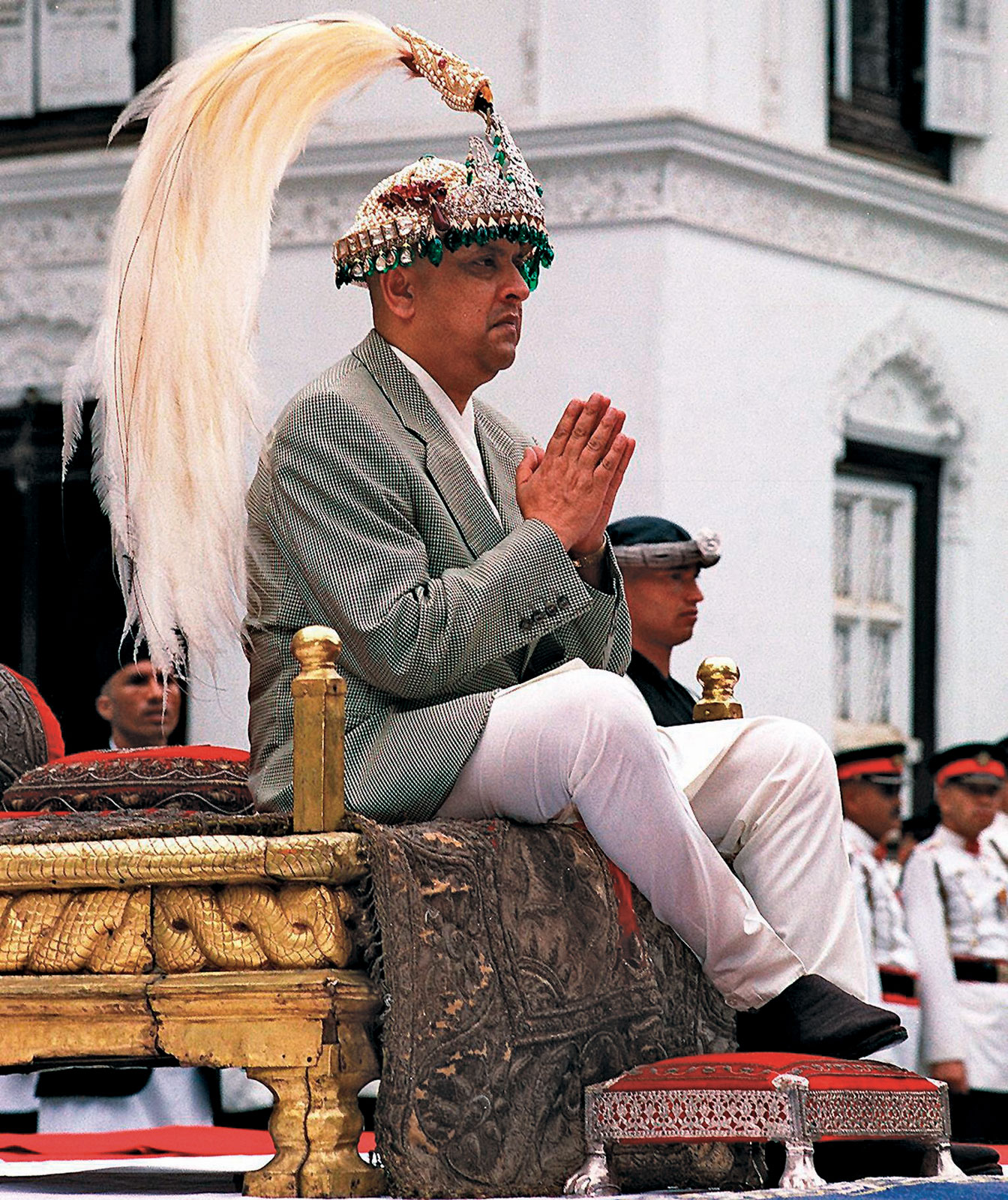Gyanendra Bir Bikram Shah, << gyah NEHN drah bihr BIHK ruhm shah >> (1947-…), the last king of Nepal, ruled from 2001 to 2008. He took the throne after the death of his brother, King Birendra Bir Bikram Shah. Birendra and his wife, Queen Aiswarya, were shot and killed in June 2001. According to a government investigation, their son, Prince Dipendra, fatally wounded them and most of the royal family before killing himself. However, there has been a dispute over the investigation results.

Gyanendra’s rule was marked by conflict. Rebels had begun fighting in 1996 to replace the country’s constitutional monarchy with a Communist government. Peace talks began shortly after Gyanendra became king, but the talks broke down in late 2001. Violence once again erupted, and Gyanendra declared a state of emergency. In 2002, he dismissed Sher Bahadur Deuba, the country’s democratically elected prime minister. Gyanendra took full executive control of the government and appointed his own prime minister and Council of Ministers.
Gyanendra faced much criticism for following his father’s style of absolute rule. From fall 2003 to spring 2004, thousands of people demonstrated against Gyanendra, charging him with violating the Constitution and demanding that he reinstate the country’s Parliament. Gyanendra then reappointed Deuba, but dismissed him again in early 2005. Gyanendra argued that Deuba had not effectively dealt with the rebels. Gyanendra also suspended certain constitutionally guaranteed civil liberties, including free expression and assembly. He also arrested many senior political officials, including Deuba. However, in April 2006, after protests by tens of thousands of people, Gyanendra reinstated Parliament. Parliament soon stripped the king of most of his powers. In May 2008, Parliament passed a law that abolished the monarchy, and Gyanendra lost his throne.
Gyanendra was born on July 7, 1947, in Kathmandu, Nepal’s capital. He earned a bachelor’s degree from Tribhuvan University in Kathmandu.
